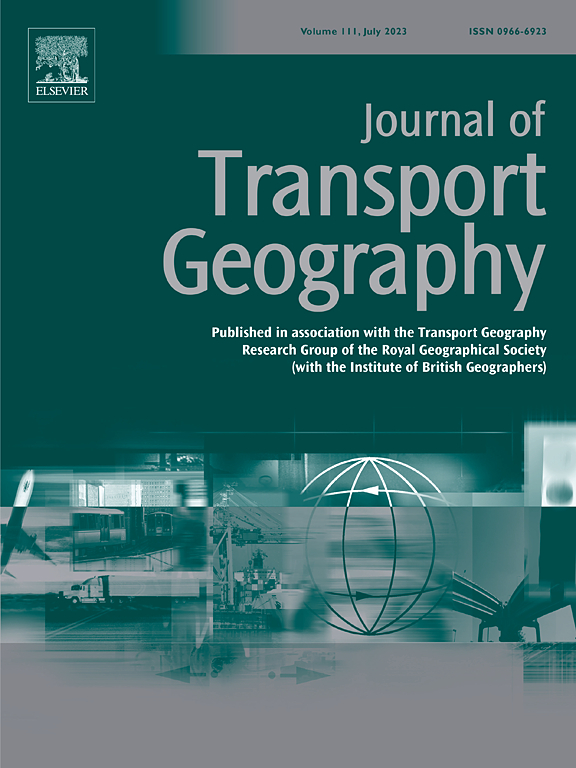Beyond infrastructure: Unpacking the complexity of exclusion and implications for just mobility transitions
IF 5.7
2区 工程技术
Q1 ECONOMICS
引用次数: 0
Abstract
There is an emerging awareness that the transition towards sustainable transportation systems may contribute to widening social disparities, especially related to access to opportunities and services among marginalised communities manifested as transport exclusion. However, mechanisms that lead to or compound transport exclusion are less understood and empirics uncovering how marginalised communities experience exclusion are limited. This study uses a qualitative approach to explore the experiences of exclusion in mobility among ‘community leaders’ representing marginalised populations, including children, elderly, low-income individuals, disabled people, LGBTQ+, and communities of colour. We use the case of cycling to provide a lens into such transitions, as cycling is often referenced as a mode with sustainable and inclusive benefits. The study is based in Amsterdam, the Netherlands, which offers a unique context to situate mobility justice dilemmas due its matured cycling environment and policies. Findings highlight the complexity of exclusion and the need for a holistic, comprehensive approach to transportation planning to ensure a just mobility transition. The study calls for a transformation towards epistemic and procedural justice where knowledge, skills, and representation at all municipal levels become more inclusive of diverse perspectives in planning practices and decision-making processes, requiring a combination of top-down and bottom-up strategies.
超越基础设施:揭示排外的复杂性及其对流动性转型的影响
人们逐渐认识到,向可持续运输系统的过渡可能导致社会差距扩大,特别是边缘化社区在获得机会和服务方面的差距,表现为交通排斥。然而,导致或复合运输排斥的机制尚不清楚,揭示边缘化社区如何经历排斥的经验也很有限。本研究采用定性方法探讨了代表边缘化人群的“社区领袖”在流动中被排斥的经历,包括儿童、老年人、低收入者、残疾人、LGBTQ+和有色人种社区。我们以骑自行车为例,为这种转变提供了一个视角,因为骑自行车通常被认为是一种具有可持续和包容性利益的模式。这项研究是在荷兰阿姆斯特丹进行的,由于其成熟的自行车环境和政策,它提供了一个独特的背景来定位交通正义困境。研究结果强调了排他性问题的复杂性,以及需要采取全面、综合的交通规划方法,以确保公平的交通转型。该研究呼吁向认识和程序正义转变,使所有市级的知识、技能和代表权在规划实践和决策过程中更加包容不同的观点,这需要自上而下和自下而上战略的结合。
本文章由计算机程序翻译,如有差异,请以英文原文为准。
求助全文
约1分钟内获得全文
求助全文
来源期刊

Journal of Transport Geography
Multiple-
CiteScore
11.50
自引率
11.50%
发文量
197
期刊介绍:
A major resurgence has occurred in transport geography in the wake of political and policy changes, huge transport infrastructure projects and responses to urban traffic congestion. The Journal of Transport Geography provides a central focus for developments in this rapidly expanding sub-discipline.
 求助内容:
求助内容: 应助结果提醒方式:
应助结果提醒方式:


